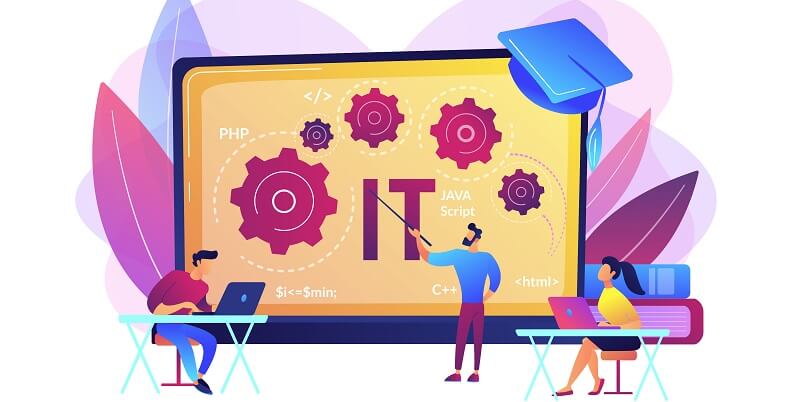Today, IT operations lie at the heart of any organization as businesses increasingly depend on technology to stay competitive. However, without the ability to map the health of IT systems to relevant business metrics, organizations may be faced with unintelligible alerts, resulting in increased incident repair times. To address these challenges, the cloud has emerged as the perfect tool to bring together the different capabilities required for managing IT operations. The convergence of AI and IT operations, known as AIOps, is revolutionizing the way organizations monitor, analyse, and optimize their technology infrastructure.
Mapping IT System Health to Business Metrics
To effectively manage IT systems, it is crucial to link their health to relevant business metrics. When the performance and availability of IT systems align with business objectives, organizations can optimize their operations and make informed decisions. By mapping these metrics, decision-makers gain valuable insights and can proactively address issues before they impact business functions.
Consolidating Capabilities with the Cloud
The cloud has proven instrumental in consolidating the capabilities required for managing IT operations. By leveraging cloud-based solutions, organizations can centralize data, streamline processes, and improve collaboration among different stakeholders. Cloud infrastructure further facilitates scalability, agility, and flexibility for adapting to changing business needs, enabling organizations to optimize their IT operations more effectively.
Understanding AIOps: AI and Machine Learning in IT Operations
AIOps refers to the fusion of AI and machine learning technologies with IT operations. It automates various repetitive and time-consuming tasks, enabling IT teams to focus on high-value initiatives. With AI algorithms and machine learning models, organizations can ingest and analyse massive amounts of data from various IT systems and devices, quickly identifying patterns, anomalies, and potential issues.
End-to-End Visibility for Site Reliability Engineering (SRE)
AIOps offers end-to-end visibility, enabling organizations to adopt a proactive Site Reliability Engineering (SRE) approach. By leveraging real-time data analysis, AIOps provides comprehensive insights into the entire IT infrastructure, from application performance to underlying hardware and network components. SRE teams can detect and resolve potential issues before they impact end-users, ensuring optimal system availability and performance.
Proactive Issue Identification and Resolution
One of the key benefits of AIOps is its ability to identify and resolve issues before they escalate. Through continuous monitoring and analysis of IT system data, AIOps algorithms can detect anomalies and patterns indicative of potential incidents. By leveraging historical data and machine learning, AIOps can predict future issues and even suggest remedial actions. This proactive approach helps organizations minimize downtime, enhance user experience, and optimize resource allocation.
Reducing Alert Noise with AI
The integration of AI in AIOps significantly reduces the so-called “alert noise” that overwhelms IT teams. Instead of drowning in a sea of alerts, AI algorithms proactively detect anomalies, prioritize them based on severity and relevance, and present IT teams with actionable insights. By reducing alert noise, organizations can streamline incident management processes, enhance productivity, and improve the overall effectiveness of incident response.
Addressing All Areas of IT Operations
AIOps goes beyond isolated application or infrastructure monitoring by addressing all areas of IT operations. It encompasses observation, organization, analysis, management, and collaboration. AIOps platforms provide a centralized hub where IT teams can collect, analyze, and visualize data from multiple sources, enabling them to gain a holistic view of their IT landscape. This comprehensive approach enhances decision-making, accelerates problem-solving, and optimizes resource allocation.
Solving Complex IT Challenges with AIOps
Even the most complex IT challenges can be effectively addressed with an AIOps solution. By leveraging AI and machine learning algorithms, AIOps platforms can handle vast amounts of structured and unstructured data, uncover hidden patterns, and provide actionable insights. This empowers IT teams to tackle intricate issues more efficiently, resolve them faster, and ultimately enhance the reliability and performance of their IT systems.
The future of AIOps holds great promise. By combining AIOps with generative AI, which leverages the power of large language models, organizations can further enhance their ITOps landscape. Generative AI enables more contextual information extraction, language understanding, and even the automation of complex decision-making processes. This integration has the potential to revolutionize IT operations by providing even more advanced insights, automating mundane tasks, and offering intelligent recommendations.
AIOps has emerged as a powerful tool for organizations to optimize their IT operations. By leveraging AI and machine learning, organizations can proactively manage IT systems, enhance performance, and deliver a seamless user experience. From end-to-end visibility to proactive issue identification and resolution, AIOps offers significant benefits for businesses across industries. As we explore the possibilities of generative AI, we can expect an even greater transformation in the ITOps landscape. By embracing AIOps and staying at the forefront of technological advancements, organizations can build resilient and efficient IT operations that drive their business success.

